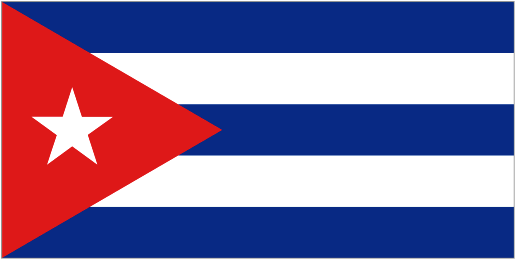The Volokh Conspiracy
Mostly law professors | Sometimes contrarian | Often libertarian | Always independent
The good, bad, and ugly of Trump's new Cuba policy

Late last week, President Trump announced a change in US policy towards the communist dictatorship in Cuba. Although Trump claimed he was "canceling the last administration's completely one-sided deal with Cuba," his new approach actually leaves most of Obama's policies in place. It does not end normalization of diplomatic relations with Cuba, nor would it bar most US trade and investment there.
Trump's new policy has some good elements, some bad ones, and one truly awful perpetuation of the worst of Obama's policy. On the plus side, the new policy bars US trade and investment in enterprises owned by the Cuban military and secret police. Even if you believe that trade and investment are beneficial and likely to stimulate liberalization in Cuba, that is surely not true of commerce that directly enriches the very entities that perpetuate repression in one of the world's last largely unreformed communist despotisms.
Also potentially beneficial is the plan to convene a State Department task force on increasing internet access for Cubans. This could make it easier for dissidents to organize, and other Cubans to utilize information sources not controlled by the state. Obviously, whether this initiative actually achieves anything remains to be seen.
Much more dubious is Trump's policy of tightening restrictions on travel to Cuba by Americans. I can understand the point that such travel often enriches the regime. On the other hand, travel restrictions are a significant infringement on freedom, and it is far from clear that they actually do much to undermine the government's grip on power. Americans are not restricted from traveling to other nations with oppressive governments, including some that are as bad or almost as bad as Cuba's. At the very least, we should not restrict Americans' freedom to travel unless there is strong evidence that doing so really will have a substantial beneficial effect on human rights in Cuba.
Contrary to the expectations of its defenders, Barack Obama's normalization policy has not resulted in any improvement in Cuban human rights. Its onset actually coincided with an upsurge in repression, and the liberal Human Rights Watch group reports that, in some ways, the government has actually increased its harassment and persecution of dissidents in recent years. Whether Trump's policy brings better results remains to be seen. They could hardly be much worse.
One one key point, however, Trump has perpetuated the very worst of Obama's approach. He has decided to maintain Obama's cruel policy reversal on Cuban refugees, which effectively bars the vast majority of them from staying in the United States, ending decades of bipartisan policy welcoming at least those who manage to make it to US soil.
Some defend Obama's shift by arguing that the previous approach unduly favored to Cuban refugees over those fleeing other repressive regimes. But any such inequality should be cured by treating other refugees better, not consigning Cubans to oppression. It is better that at least some refugees be saved than that all be condemned to further abuse in the name of equality.
In a speech in Miami announcing his new Cuba policy, Trump denounced Cuba's repressive policies, including its "abuse of dissidents" and "jailing [of] innocent people." But his crocodile tears about the plight of Cuban victims of communist oppression ring hollow, so long as he bars virtually all of them from finding refuge in the US, and instead perpetuates Obama's new policy of consigning them to the tender mercy of their oppressors.
Sadly, Trump is not the only hypocrite here. To their credit, liberal Democrats have rightly condemned Trump's travel ban executive order, and attempt to bar Syrian refugees. But most Democrats have either ignored or actively supported the cruel new policy on Cuban refugees - perhaps because that policy was initiated by a Democratic president (though now also continued by Trump).
Here, as elsewhere, we should try to set aside partisan bias. The barring of refugees fleeing brutal oppressors is unjust regardless of whether it was done by a Democratic president or a Republican one, and regardless of whether the rulers oppressing them are communists, right-wing despots, or radical Islamists. In most cases, the US is not responsible for the misdeeds of oppressive governments abroad. But we are morally responsible for using government coercion to prevent them from finding safety, and returning them to the control of the very forces they are fleeing.
UPDATE: I have made a couple minor additions to this post.


Show Comments (0)